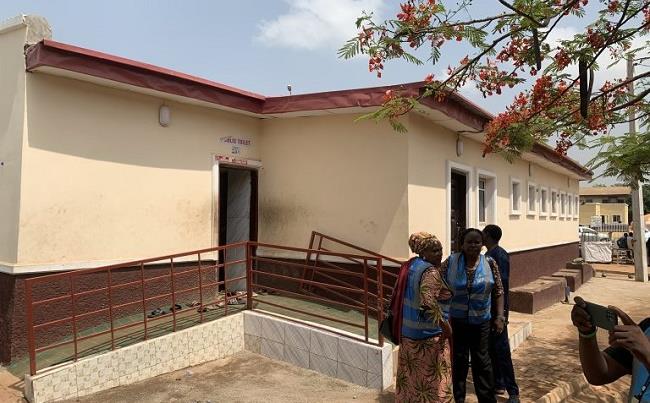The Federal Government, through the Clean Nigeria Campaign (CNC) Secretariat, has stepped up efforts to make the FCT open defecation-free by 2025.

Mrs Chizoma Opara, CNC National Coordinator, said this when she led a team to visit toilets constructed under the private sector arrangement of “Build Operate and Maintain” intervention in Abuja on Thursday, April 6, 2023.
The FCT Rural Water Supply and Sanitation Agency (RUWASSA) had partnered with the CNC to implement the Executive Order 009 of President Muhammadu Buhari in 2019.
The order stipulates an end to open defecation practices in the country by 2025, following Nigeria’s ranking as the second country with the highest number of people practising open defecation globally.
According to the 2021 Water Sanitation and Hygiene (WASH) Normal Routine Mapping report, 30 per cent of FCT residents practice open defecation, while 48 million people practice it nationwide.
Opara said it was observed that awareness on the constructed toilets was low, hence the need to carry out sensitisation towards educating the public of its existence, importance and use.
She noted that the FCT administration had keyed into the open defecation-free programme with the promise to provide 10,000 toilets in the nation’s capital.
“We actually thought that it was necessary to look around these facilities and then also to create an awareness around it, because we know that ending open defecation requires that facilities be put in places.
“Such public places like markets, parks, schools and all that, a lot of these facilities are springing up without many people not aware that these are toilets, so it became necessary that we need to create that awareness in the FCT”.
The national coordinator called on FCT RUWASSA to intensify efforts to monitor usage, improve hygiene and ensure that no one was left behind in the campaign for a cleaner environment and safe country .
She said the campaign was aimed at mobilising high-level political support, resources, and the entire populace, towards building a new culture of safe sanitation.
“Following the national launch of the campaign, many states followed suit with the launch of their state-level campaigns and target dates which ranged from 2022 to 2025.
“We are working to see that Kwali Area Council becomes open defecation-free, currently, Nigeria has no less than 100 local governments that have achieved that feat”.
Mr Sani Karu, Assistant Director Information, Media and Publicity, FCT RUWASSA, said the toilet projects were part of activities to support Federal Government’s efforts to scale up sanitation and hygiene in the country.
According to Karu, the executive order 009 mandated all stakeholders to key into the national roadmap towards ending open defecation, saying so far, 200 spots had been allocated to the private sector to that effect.
“Now, we have 20 toilets in different locations that are being used in the FCT, as you can see for yourself, it is now in use and people are happy with this development.”
Karu said the agency would continue to monitor contractors’ compliance with specifications, and carrying needs of everyone along, so as to ensure inclusiveness, especially for persons living with disabilities.
The team visited Sauka, Lugbe, Area One and Wuse public toilet sites, with responses from users commending Federal Government and the FCT administration for changing the poor sanitation situation in the areas.
At a visit to Lugbe Public Toilet site, patronage of the toilets was observed, with drivers complimenting the development.
Mr Frank Chigozie, a commercial driver, commended the initiative and appealed to Government to replicate same in rural communities and other public buildings.
Mr Zernnogun Terungwa, Manager of the newly constructed toilet in Area One Motor Park, said patronage had increased as a result of awareness creation.
“Many people are happy, they pay between N20 to N50 to use the toilet, and N100 to bath, people no longer defecate publicly anymore, our environment no longer smells,” Terungwa said.
By Tosin Kolade
